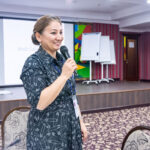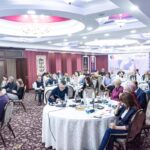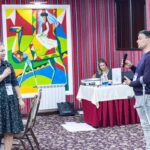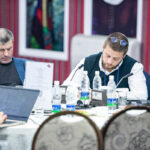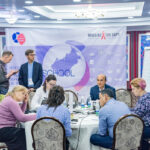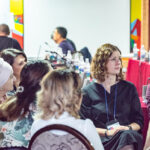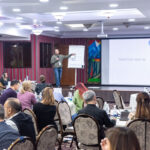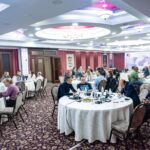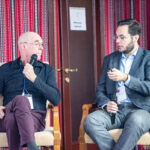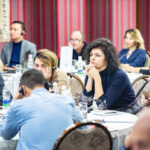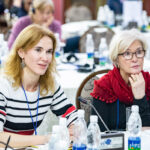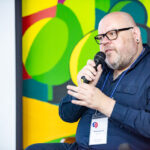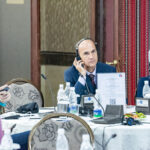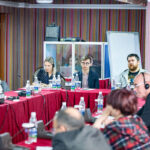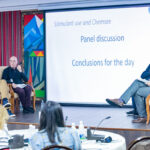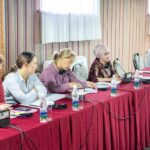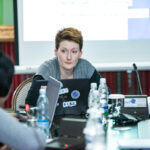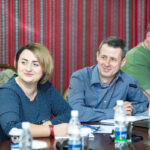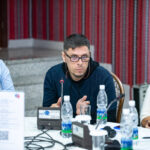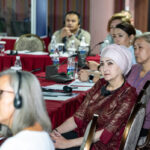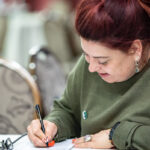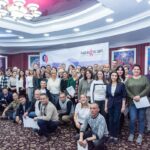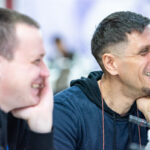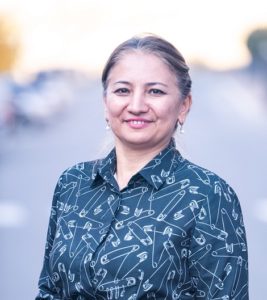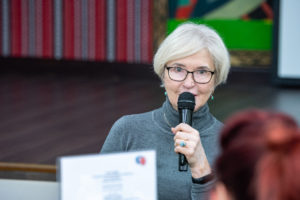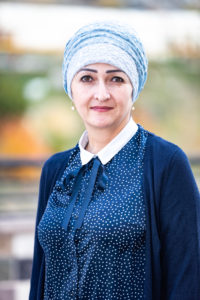On October 29, AFEW partners came together in Bishkek, the capital of Kyrgyzstan, for 3 days to take part in the annual Autumn School, which is organized within the project “Bridging the Gaps: health and rights of key populations“.
The great energy of the participants and amazing nature gave a chance to everyone to enjoy the event and to discuss important issues on prevention and treatment of #HIV, harm reduction, migration, and financing in the region of Eastern Europe and Central Asia. Participants in the Autumn School included representatives of AFEW partners from Kazakhstan, Kyrgyzstan, Ukraine, Russia, and the Netherlands, sub-recipients of the project “Bridging the Gaps”, as well as other partners and experts including those from Great Britain and the USA.
Active space
The Autumn School quickly became an active space for discussion: about strategy, barriers, innovations, and partnership opportunities between the participating organizations. During the first day, participants shared updates on the “Bridging the Gaps” project and activities in their countries – Georgia, Kyrgyzstan, Ukraine, and Tajikistan. The afternoon session was devoted to a World Café, in which partners exchanged ideas and developed specific actions to overcome challenges that they often encounter in their work.
The second day was devoted to the topic “Stimulant use and chemsex”. Benjamin Collins, director of International HIV Partnership (IHP), which partners with medical and community activists across Europe and the Middle East for successful responses to HIV and viral hepatitis, joined the Autumn School in Bishkek to share his experience on chemsex . The topic of (problematic) chemsex was further elaborated in the presentations of Monty Moncrieff, Chief Executive of London Friend, a London charity working to promote the health and well-being of lesbian, gay, bisexual and trans (LGBT) people, and Daria Alexeeva, program director of AFEW International. Monty spoke about the London experience in harm reduction, while Daria presented materials of Nikolay Lyuchenkov, an infectious disease doctor and expert on sexual health issues from Russia, which were focused on trends and responses to chemsex in Russia and EECA region.
The third and final day of the conference was devoted to workshops on migration, rehabilitation and financial sustainability. Evgeniya Alekseeva, director of Public Health and Social Development Foundation “FOCUS-MEDIA”, presented analysis of NGOs funding situation in EECA region; Elena Zhirnova, manager of the project “Our Choice: Empowering Vulnerable Women in Kyrgyzstan” (AFEW-Kyrgyzstan) told about challenges and opportunities of social entrepreneurship in the country; and Fatima Yakupbayeva, co-founder of law firm “PRECEDENT” and publisher of the book “From Grant to Business Project”, shared auditing resources for launching a business model and recommendations on how to implement business ideas.
The session on migration started with a presentation by Rukhshona Kurbonova, coordinator of the Migrant Health Programs at International Organization for Migration in Tajikistan. She talked about labor migration in Central Asia.
The session on rehabilitation was devoted to building information campaigns. During the session, Marina Govorukhina, specialist on strategic communications and branding, author of the books “Communications in Public Organizations”, “Strategic Communications in Public Organizations”, demonstrated specific techniques of developing informational marketing campaigns for rehabilitation centers to the participants from Georgia, Kyrgyzstan and Ukraine.
Moreover, the School included a 2-day training for AFEW communication managers, during which participants focused on learning about storytelling and SMM in the context of NGOs.
Natalya Shumskaya, director of AFEW-Kyrgyzstan
I especially noted the session on new psychoactive substances. This topic is relevant for our country, as sexual ways of HIV transmission keep growing in Kyrgyzstan, and new psychoactive substance use impacts sexual behavior. For us it is a wonderful opportunity to take on the experience of those countries that have already faced similar problems, and elaborate effective strategies for preventative measures in our country.
The third day was remarkable due to the acute topic of sustainability of civil society organizations. We all see the tendency of decreasing donor support in our countries. That means that civil society should aim to ensure financial sustainability independently, and one of the opportunities is the development of social entrepreneurship. During this meeting we shared the experience of creating our own social enterprise – a beauty salon. I would like to especially point out the session by Fatima Yakupbayeva from the “Precedent” company. She gave us specific business-ideas, which could be developed by an NGO in order to earn money independently and further direct it to realization of our statutory goals.
The importance of this event is in sharing and exchange of experience. When the financial support for our organizations is not that high, it is important to avoid duplication of activities, and, on the other hand, to consolidate our efforts in order to realize our main strategic goals. For instance, the past regional meetings allowed us to bring good practices of working with youth at risk from Ukraine to our country. We are very grateful that we didn’t have to be the pioneers in this, but rather adapt and use their experience. Also, I think that the experience of Kyrgyzstan will be useful to some of our colleagues, and they will be able to apply it in their countries.
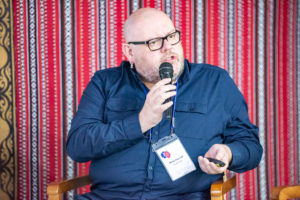 Monty Moncrieff MBE, Chief Executive of London Friend
Monty Moncrieff MBE, Chief Executive of London Friend
It’s important for people working in the region on the same issues to have the opportunity to come together and share their knowledge and experience. It helps build the data on important topics, and enables participants to share what they’re seeing locally, as well as share tips on how to address new and emerging trends. It also helps build relationships, which spark ideas for new partnerships. Even though the internet gives us great opportunities to connect and work together online it’s difficult to get that richness of connection without bringing people together in person, and doing so for a number of days provides lots of opportunities for conversations outside the formal sessions.
We can always learn from one another, and hopefully by inviting people who have been working on issues for some time in other countries we can bring the benefit of that experience. We can share leaning about what’s worked and what hasn’t for us, and hopefully that can benefit people who are only starting to see these issues emerge locally.
Evgeniya Alekseeva, PHD in medical sciences, Director of Public Health and Social Development Foundation “FOCUS-MEDIA”
Meetings such as the Autumn School are important, because they bring together people from different countries and cities, create space for discussing acute issues and situations in our field, allow to form alliances, agree about partnerships, as well as have informal conversations and take a break from the daily routine.
At the Autumn School in Bishkek, I especially noted a very interesting session on chemsex, sessions on business projects for NGOs, and on migration. I will certainly use this knowledge further while writing proposals, developing new projects and creating new ideas.
Zarina Siyakova, program coordinator of the Tajik Network of Women Living with HIV
This meeting provided me with a great opportunity to learn more about what is happening in other countries in regards to promoting prevention and treatment of HIV. I especially noted the session on chemsex, as I hadn’t had a chance to encounter this issue before. I was particularly interested in the presentation by Monty Moncrieff, as well as the presentation of Nikolay Luchenkov from Russia on chemsex in EECA.
Also, I received answers to many questions on migration that I’m interested in, and most importantly, exchanged contacts with almost all the participants. It is well known that nowadays there is a very large stream of migrants from Tajikistan to Russia, and many of them lack information about services for migrants and d existing organizations in Russia. Now our organization will be able to refer our clients to these organizations, and we won’t lose them out of sight.
If you are interested in specific presentations of the Autumn School, please send your request to autumnschool@afew.nl.

